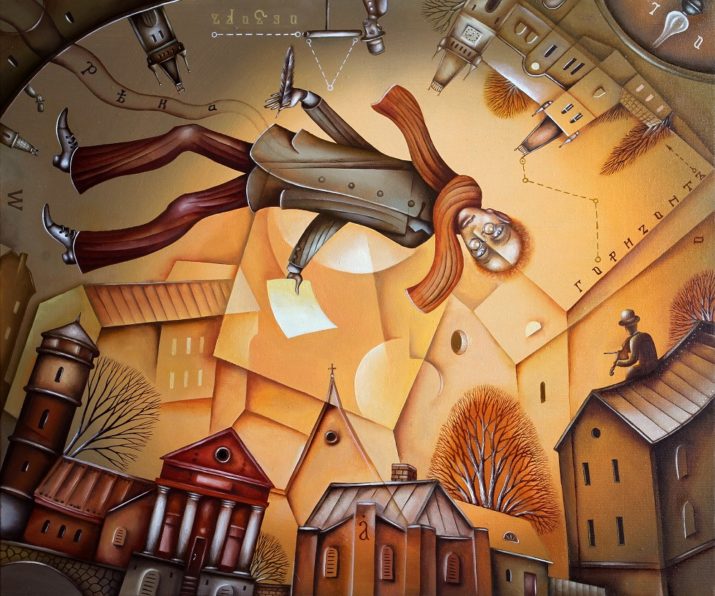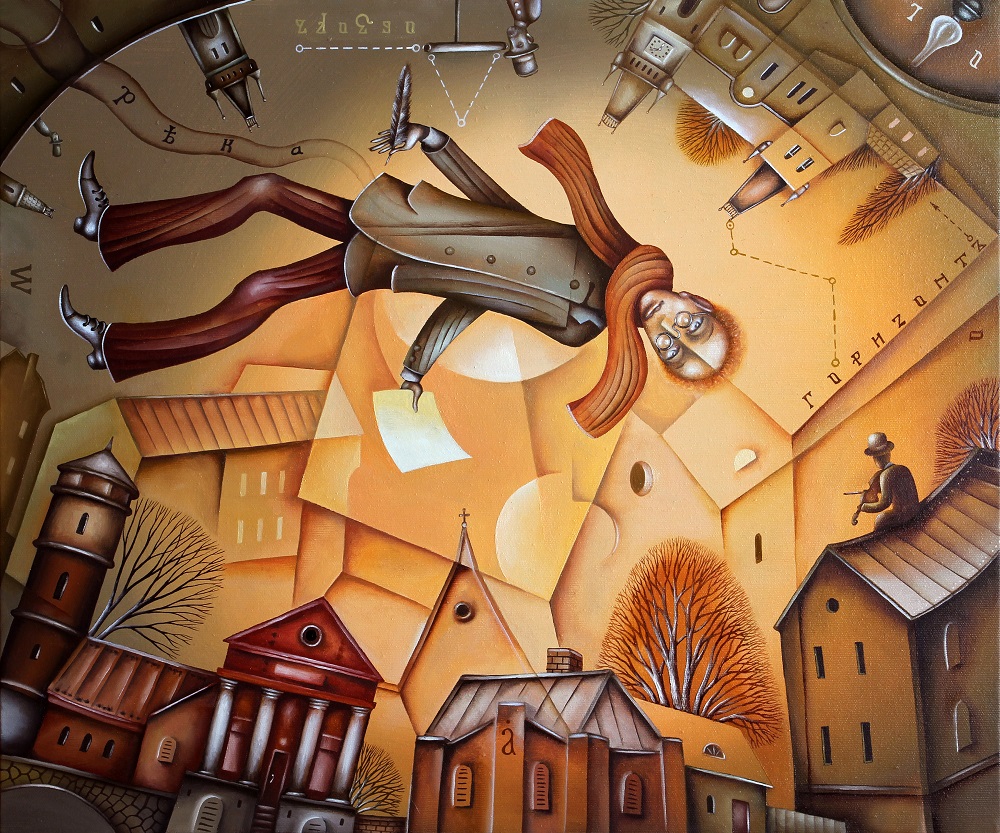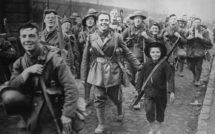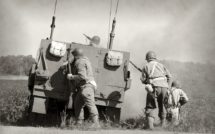

Poems written in response to World War I by immigrants in the United States constitute a broad range of commentary on the war. The poems exist primarily in print format and are widely dispersed throughout North America. The World War I American Immigrant Poetry Digital Humanities project at the University of Kansas creates a single source for these poems as well as for accompanying scholarly annotations and contextual material. We seek to preserve these historical voices by making the poetry available online to academics, teachers, students, and the general public. Furthermore, this scholarly edition aims to shed light on the historical, national, cultural, and ethnic contexts in which the poems were written and to demonstrate that this poetry can help us understand how World War I continues to shape our world today.
This Digital Humanities research project was inspired in part by my involvement with the KU WWI Centennial Commemoration, a multiyear initiative coordinated by the European Studies Program that explores the historical dimensions of the war as well as ways it can inform our understanding of more recent conflicts. My scholarly interests intersect in this project: the tradition of German political poetry written in response to war, revolution, and political crisis, and German immigrant culture in the U.S., more specifically the process by which German cultural material is transformed in the United States.
Most of the approximately 300 poems currently in our collection were written by Germans in both German and English and published in periodicals as well as in single-author volumes and multi-author anthologies. We have used archival sources held by the Max Kade Center, print materials in KU Libraries collections, and digitized anthologies available at the Library of Congress and in the HathiTrust Digital Library. Our collection also contains select poems by Mexican, Caribbean, and Yiddish-speaking Jewish immigrants.
This project began in summer 2015 with a one-year Seed Grant from the KU Institute of Digital Research in the Humanities (IDRH). IDRH provides ongoing support in the form of one-on-one consultations and workshops offered each semester that have addressed different stages of our project. The project is also supported by the KU Max Kade Center and Center for Undergraduate Research Emerging Scholars Program. Kansas State University was an initial collaborator on the project.
I used the IDRH Seed Grant to fund three undergraduate research assistants for one year: Drew Crist, a mathematics and economics major, now a senior; Janelle Fox, who double-majored in Latin American & Caribbean Studies and History and graduated in December 2016; and Caelan Graham, a junior who is earning an Environmental Studies major with German Studies and Sociology minors and studying this spring in Freiburg, Germany. Ashley Yoder, a first-year student who plans to complete her undergraduate degree in the School of Education, joined the team in fall 2016 after being selected as a participant in the pilot year of the Emerging Scholar Program coordinated by the KU Center for Undergraduate Research (CUR).
Emerging Scholars apply their Federal Work Study to assist a professor with a research or creative project and participate in professional development sessions. As the CUR website states, Emerging Scholars “get paid to learn.” Participants gain experience that may help them make a decision about a major, they connect with a professor early in their undergraduate career, and they become part of a community of students doing research. Yoder was drawn to the program: “I thought it would be cool to work closely with a professor with whom I may or may not take a class someday, to learn from her, and to gain a mentor.” The Digital Humanities project was Yoder’s first choice: “I love history and poetry, so I knew I would enjoy the project.”
The team of student researchers first learned to identify relevant poems and how to work with fragile archival material. They also developed a system for organizing our primary sources and acquired a working knowledge of World War I history through readings and discussions. The students then entered the world of Digital Humanities: they learned to transcribe and encode poems in eXtensible Markup Language (XML) using the oXygen XML editor. During this phase of the project the team also designed and implemented best practices for proofreading and for organizing and storing files on a remote server. In time, the students each developed expertise in one or more specific aspects of the project: Crist and Graham, both of whom have studied German, encoded German-language poems (Yoder, who does not know the language, recently encoded her first poems in German). Graham became our go-to person for devising solutions to encoding problems. Fox researched often obscure references to people, places, and events mentioned in the poems, identifying helpful sources for writing scholarly annotations. Yoder has now taken on this task, in addition to compiling a handbook with guidelines and instructions for all aspects of the project. Crist is currently constructing the project website, a skill he has taught himself by learning how to work with HTML, CSS, JavaScript, and XSL, for example.
While historians such as Margaret MacMillan and Chad Williams admonish us to look back on the First World War and understand its implications (and warnings) for today’s world, I have discovered that many Rhine songs (Rheinlieder) found in our collection reveal complexities found in German-American ethnic identity in the early 20th century and at the same time add layers of complexity to German 19th-century political poetry. Whether original or refashioned versions of “The Watch on the Rhine” (Die Wacht am Rhein), a poem by Max Schneckenberger popular in the early 1840s , patriotic poems such as Ludwig Lewisohn’s “Die Wacht am Rhein,” when they appear in pro-German periodicals published by German migrants living in the U.S. during the World War I era, constitute evidence of transatlantic cultural transfer that can illuminate how German immigrants employed poetry to maintain their German ethnic identity or to create a hybrid ethnic identity in the U.S.—an identity whose public image underwent profound change when the U.S. entered the First World War in 1917.
Mentoring my undergraduate research assistants has been the most rewarding aspect of this project. Their enthusiasm for the poetry, their commitment to the project, and their collaborative spirit inspire me to ensure that we function as a team and continue to learn from one another, and that their work on the project has a positive impact on their intellectual and professional development. I would like to share some comments the original three research assistants made during an interview by the KU News Service in December 2015. “For German immigrants in America, their heritage overseas and their identity as Americans came into conflict,” Crist observed. “These are timeless questions. Even the immigrant question today reflects some of the issues we see in this poetry.” The students had also discovered that studying poetry from the World War I era gave them a more differentiated view of how the war touched everyday lives. Graham, who had presented his initial findings at the Hall Center Undergraduate Research in the Humanities, Arts, and Social Sciences Seminar (he had analyzed anti-British poems published during the war in a pro-German periodical), explained: “In the history courses I have taken in the past, we have learned about the mechanics of war, the soldiers and the politics involved. But this project has allowed a glimpse into how the war affected everyone.” Fox commented on ethnic tensions generated by the U.S. entry into the war, as evidenced by poems in our collection: “As an ally of Britain, Americans looked down on the German-Americans, which is interesting because today if you have German heritage it is a very celebrated thing.” These statements reflect not only the high degree to which the student researchers had immersed themselves in the project but also their critical thinking about the poetry’s potential for illuminating the past.
Lorie A. Vanchena, associate professor of Germanic Languages & Literatures at the University of Kanas, is author of the monograph Political Poetry in Periodicals and the Shaping of German National Consciousness in the Nineteenth Century (2000). She has also published an English translation of Reinhold Solger’s novel from 1862: Anton in America: A Novel from German-American Life (2006). She teaches courses on the German transatlantic experience, German literature and the modern era, and German-speaking Europe today. Vanchena serves as Academic Director of the European Studies Program and the Max Kade Center and directs the undergraduate program in the German department. In 2015 she received the J. Michael Young Academic Advisor Award from the College of Liberal Arts and Sciences in recognition of merit for guiding undergraduate students to make good decisions toward their educational and career goals.
This article is part of our special feature Memory and the Politics of the Past: New Research and Innovation.
Photo: The writer during the moment of creative inspiration, Eugene Ivanov | Shutterstock
Published on April 4, 2017.




